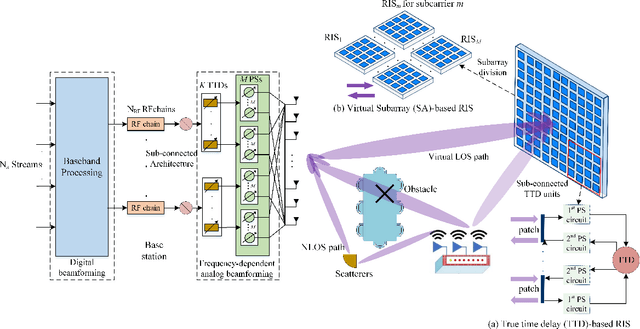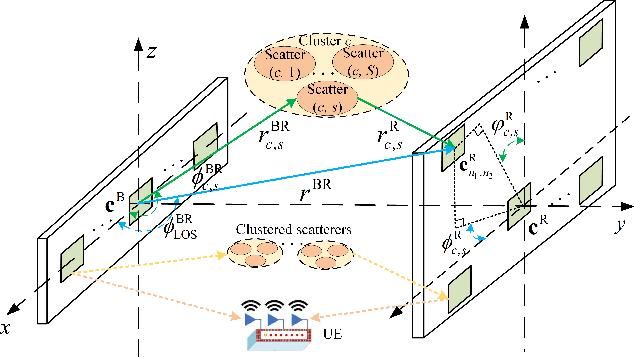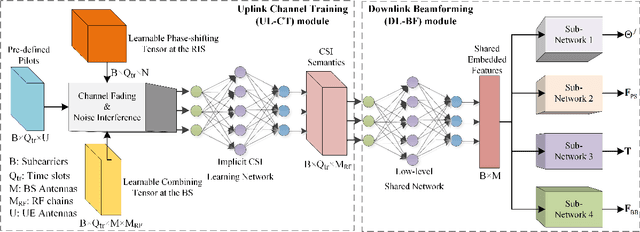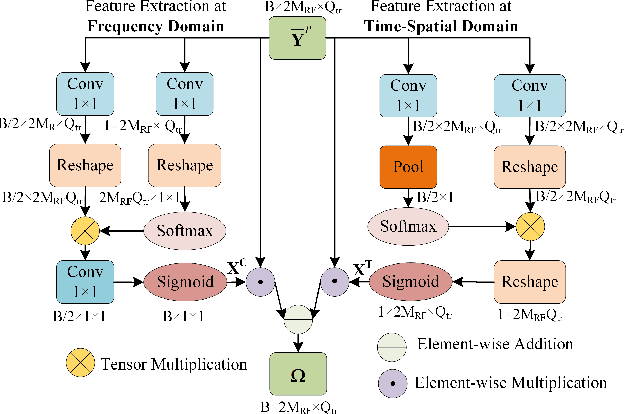Wideband Beamforming for RIS Assisted Near-Field Communications
Paper and Code
Jan 20, 2024



A near-field wideband beamforming scheme is investigated for reconfigurable intelligent surface (RIS) assisted multiple-input multiple-output (MIMO) systems, in which a deep learning-based end-to-end (E2E) optimization framework is proposed to maximize the system spectral efficiency. To deal with the near-field double beam split effect, the base station is equipped with frequency-dependent hybrid precoding architecture by introducing sub-connected true time delay (TTD) units, while two specific RIS architectures, namely true time delay-based RIS (TTD-RIS) and virtual subarray-based RIS (SA-RIS), are exploited to realize the frequency-dependent passive beamforming at the RIS. Furthermore, the efficient E2E beamforming models without explicit channel state information are proposed, which jointly exploits the uplink channel training module and the downlink wideband beamforming module. In the proposed network architecture of the E2E models, the classical communication signal processing methods, i.e., polarized filtering and sparsity transform, are leveraged to develop a signal-guided beamforming network. Numerical results show that the proposed E2E models have superior beamforming performance and robustness to conventional beamforming benchmarks. Furthermore, the tradeoff between the beamforming gain and the hardware complexity is investigated for different frequency-dependent RIS architectures, in which the TTD-RIS can achieve better spectral efficiency than the SA-RIS while requiring additional energy consumption and hardware cost.
 Add to Chrome
Add to Chrome Add to Firefox
Add to Firefox Add to Edge
Add to Edge